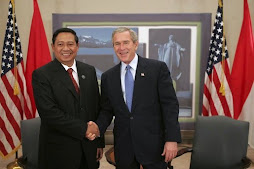From Joseph and Darius
1. What is the economy like right now in Jakarta?
2. Is their rules to protect the economy?
ANSWER: The development of a nation depends chiefly on its strong economy and a stable government. In other words economics is a major pillar of a nation and Indonesia is no exception. Indonesia economy shows the positive side of the country which is always progressive.
Indonesia is filled with abundant natural resources which have made the 90% of the population to get engaged into agriculture. The other major pillars of Indonesia in terms of production are oil and natural gas which contributes around 70% of the total export and 60% of the total Government revenue. Indonesia is traditionally an agriculture based country and its economy has always been dependent on it. But in the recent past the change in the world prices of commodities and the world economy has forced a change in the traditional economy of Indonesia too. The country has undergone a structural change in its economic policies and different sectors have come up fast. Industries like Tourism have started providing a firm backbone to the infrastructure and have been a major foreign currency earner for the country. Since 1976, Indonesian economy has had good growth and has developed its own communication facilities system with satellites, expansion of telephone and television to all its provinces.
Another major sector which was developed during this period in the country was transportation (I know I just covered transportation and didn't paint a pretty picture) which paved the way for the foods transport to the different provinces of the country. The airports along with the roads and the sea ports were developed fast to provide better service to the growing traffic on the both domestic and the international sectors.
Apart from the basic industries Indonesia is also a leading producer of forestry products, rubber, coffee, tea, tin, nickel, copper, palm products and fish. These are the major contributor to the foreign exchange of the country. The recent years have also seen some major steps taken to promote non-oil products like handicrafts, textiles, precious metals, tea, tobacco, cement, fertilizers and manufactured goods as well.
Other industries in Indonesia are the assembling plants of the various automobiles under the license of foreign manufacturers. Indonesia has a market-based economy in which the government plays a significant role. There are 139 state owned enterprises and the government administers prices on basic goods such as fuel, rice and electricity which helps to keep the economy stable.
Subscribe to:
Post Comments (Atom)

















































No comments:
Post a Comment